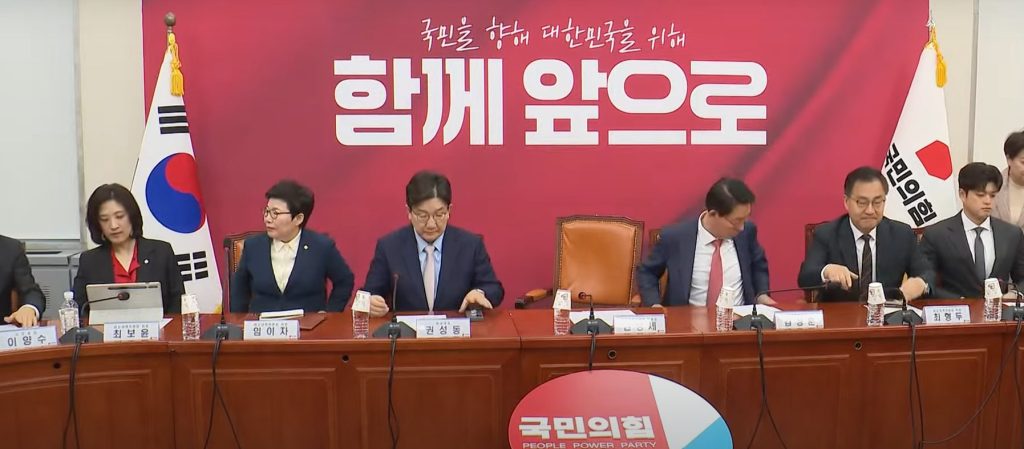South Korea’s PPP Vows to Axe Crypto Exchange Banking Restrictions in Election Pledge
South Korea’s ruling People Power Party (PPP) just threw crypto exchanges a lifeline—promising to scrap banking hurdles if re-elected. The move could dismantle the controversial ’real-name account’ system that’s throttled exchange operations since 2018.
Why it matters: Banks currently act as gatekeepers, requiring exchanges to maintain partnerships for KRW deposits. Critics call it de facto overregulation—now the PPP’s betting crypto voters care more about market access than bureaucratic hand-wringing.
Between the lines: This isn’t altruism. With 20% of South Koreans estimated to hold crypto and elections looming, the pledge reeks of political arbitrage. After all, what better way to court the ‘Kimchi Premium’ crowd than by offering regulatory leverage?
The bottom line: Another case of politicians discovering blockchain—right when they need campaign fuel. How convenient.
Crypto Exchange Banking Rules: On the Way Out?
Without such a partnership, exchanges cannot offer their clients crypto-fiat pairings. At present, only five domestic exchanges have managed to convince banks to enter such partnerships.

Shortly after the law was rolled out, scores of smaller exchanges were forced to close. Others have tried to get by, offering their clients crypto-to-crypto only trading.
The PPP said the rule change would be one of seven “major tasks” that would help it “foster the cryptoasset ecosystem.”
Speaking at a summit held at the National Assembly on April 28, PP lawmaker Park Soo-min said:
“It is very restrictive for citizens if they cannot trade cryptossets through the bank of their choice. [The current rules] have solidified monopolies on the market. [Our approach] will also open the door to competition between exchanges.”
The PPP also unveiled six other crypto-related policy manifesto pledges, namely:
- The launch of corporate crypto trading before the end of 2025
- The creation of a Virtual Asset Special Committee that will report to the South Korean President
- Green-lighting the launch of crypto spot ETF trading “within 2025”
- Security token offering (STO) legislation
- “Global-standard” stablecoin regulation
- Crypto tax clarity
The PPP said that its policies would help foster innovation in the industry and restore investors’ trust.
With Korea’s presidential election nearing, the political divide remains stark. This 2021 @TheKoreaHerald article on left-right tensions is still spot-on. The rift has only deepened since. Worth a read: https://t.co/1t7E6GMSdj#KoreaPolitics #Election
— The Korea Herald 코리아헤럴드 (@TheKoreaHerald) April 28, 2025Election Countdown Continues
South Korea will head to the polls to elect a new President on June 3. Polls currently put the PPP’s biggest rival, the Democratic Party (DP), ahead with ratings of almost 47%, ahead of the PPP’s 35%.
The DP has already selected its leader, Lee Jae-myung, as its official candidate. The PPP is likely to choose between Former Labor Minister Kim Moon-soo, ex-Daegu Mayor Hong Joon-pyo, and the former PPP leader Han Dong-hoon when it completes its own selection process.
South Korea’s main opposition party named ex-leader Lee Jae-myung as its candidate for the snap presidential election on June 3. Lee pledged to work toward national unity https://t.co/XQ6v1XhCS7 pic.twitter.com/ojiQT4dnFQ
— Reuters (@Reuters) April 27, 2025Han has previously made a slew of his own pro-crypto promises, including calls for Bitcoin ETF approval.
And Han said that he wanted to deregulate the domestic crypto sector to boost its international competitiveness.
Members of the DP have also spoken of their wish to reform crypto regulations in South Korea. Some senior figures have also talked up the idea of launching a national strategic Bitcoin reserve.
However, many critics think that both parties are talking about crypto in a bid to lure younger voters to the ballot box.
Crypto was also a major talking point going into the 2022 South Korean Presidential Elections. However, the victorious Yoon Suk-yeol later failed to deliver on many of his crypto-related manifesto promises.

